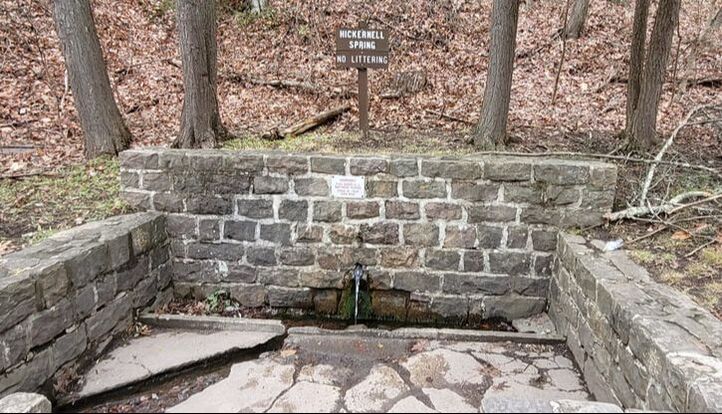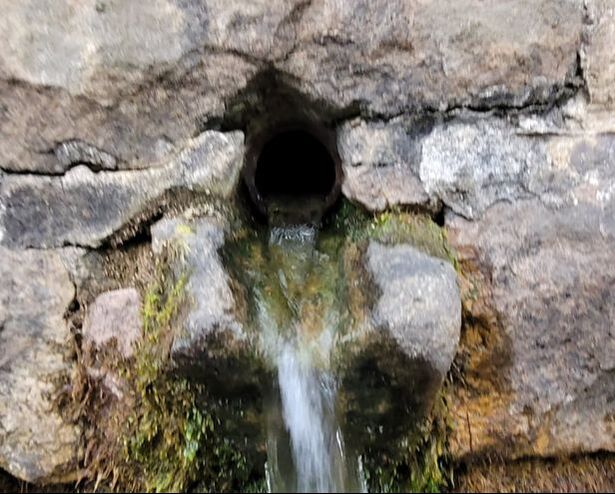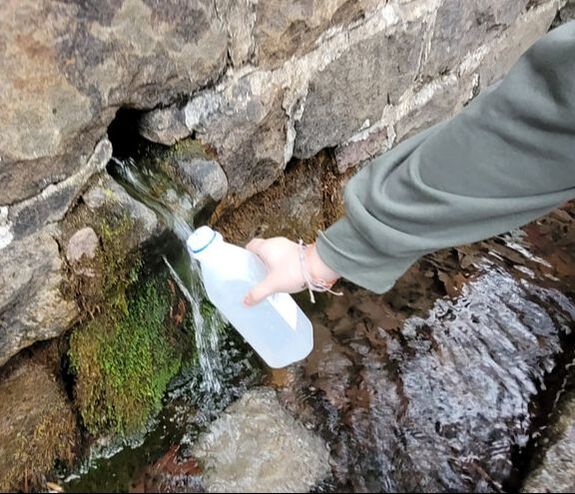|
No more than five years old, a boy used both hands to guzzle a glass of tap water from the mudroom sink of his family’s rental home while I prepped four plastic bottles for water sampling from the same faucet he just finished using. The home had a previous treatment system in place, and there was no reason to assume anything was wrong with the water this young boy was drinking. However, test results later showed elevated levels of numerous contaminants in the water – including lithium at more than 10 times the EPA and USGS’ Health-Based Screening Level, strontium nearly four times more than the EPA’s health reference level and elevated concentrations of both bacteria and boron.
While it didn’t show issues with various heavy metals, the test did indicate a presence of total coliform bacteria and a slight elevation in hardness, calcium and magnesium – and only a basic test was done.
In a different part of the watershed, a woman dealt with recurring issues with bacterial infections throughout 2022. Scrambling for answers, I tested her water to find excessively high levels of bacteria flowing from her tap. After making some adjustments in water usage, she has been much healthier. Per our state constitution, Pennsylvanians “have a right to clean air, pure water, and to the preservation of the natural, scenic, historic and esthetic values of the environment.” Yet, there is no state requirement for well water to be tested. While many people may personally request a water test when purchasing a new home, how many renters question their potential landlords about water quality – especially in homes that use well water? How many people using municipal water just assume it is safe for consumption without double-checking water quality on their own (or at least referencing city test results)? Even if we are sampling for the common water pollutants at these sites (such as bacteria, sulfates, nitrates, etc.), what about the growing number of “emerging contaminants” that would fly under the radar of basic testing? Some examples include PFAs (forever chemicals), endocrine disruptors, microplastics and more specialized industrial contaminants (such as trichloroethylene found at a Superfund site in Williamsport) or the cocktail of unknown substances pumped into our aquifers by fracking companies. Ultimately, we need to start being more curious about water quality, questioning the source of our water and what things may have contaminated it during its flow through the water cycle and our watershed to our faucets. It is important to follow curiosity when you may see something out of place on our waterways or learn of a threat which may be falling between the cracks. An example would be the work done by Katie Caputo in investigating reports she stumbled across on a Superfund site in Williamsport. The fact that she had never heard of the decades of pollution cleanup and containment of the site, and its proximity to the lower stretches of Lycoming Creek where her kids enjoy swimming, was enough to inspire a deeper dive into the situation. There is also Barbara Jarmoska, who has been instrumental in monitoring fracking threats along the Loyalsock Creek that has led to numerous violation discoveries and subsequent sanctions against fracking companies who are negatively impacting the waterway. I am not one for new year resolutions or making changes dictated simply by the transition to a new calendar, but it is my hope – and our challenge – that 2023 is a year of fostering curiosity and questions within the people of our watershed. It should start at home – where does your water come from? What things could be tainting the water you use to drink, cook with, shower in, etc. Is your family safe? What testing can be done to know for sure? Did you know that you can have your own water tested? There are kits you can purchase at the hardware store or acquire from your county conservation office. Or you can take samples into a lab independently and have tested for a panel of contaminants – those tests can cost a couple hundred dollars, but the peace of mind you get in return may be worth it. Beyond the home, take the time to adopt a section of waterway in your local community. Pick up litter, look into where the water in that stretch comes from and allow your curiosity to dig deeper into potential threats to that waterway. Your questions may spark a more in-depth look into a topic that otherwise may fall between the cracks or may add important data to a study that is looking at bigger trends of certain pollutants in our watershed. I encourage you to reach out to me (Riverkeeper John Zaktansky) with questions you may have or to report concerning things you may find in your part of our greater watershed. Send me an email at [email protected] or call 570-768-6300. If you’d like to get more involved in our association’s programming, please consider filling out our online 2023 Susquehanna Survey at bit.ly/3k0nDLz
0 Comments
Leave a Reply. |
AuthorsRiverkeeper John Zaktansky is an award-winning journalist and avid promoter of the outdoors who loves camping, kayaking, fishing and hunting with the family. Archives
July 2024
Topics |



 RSS Feed
RSS Feed